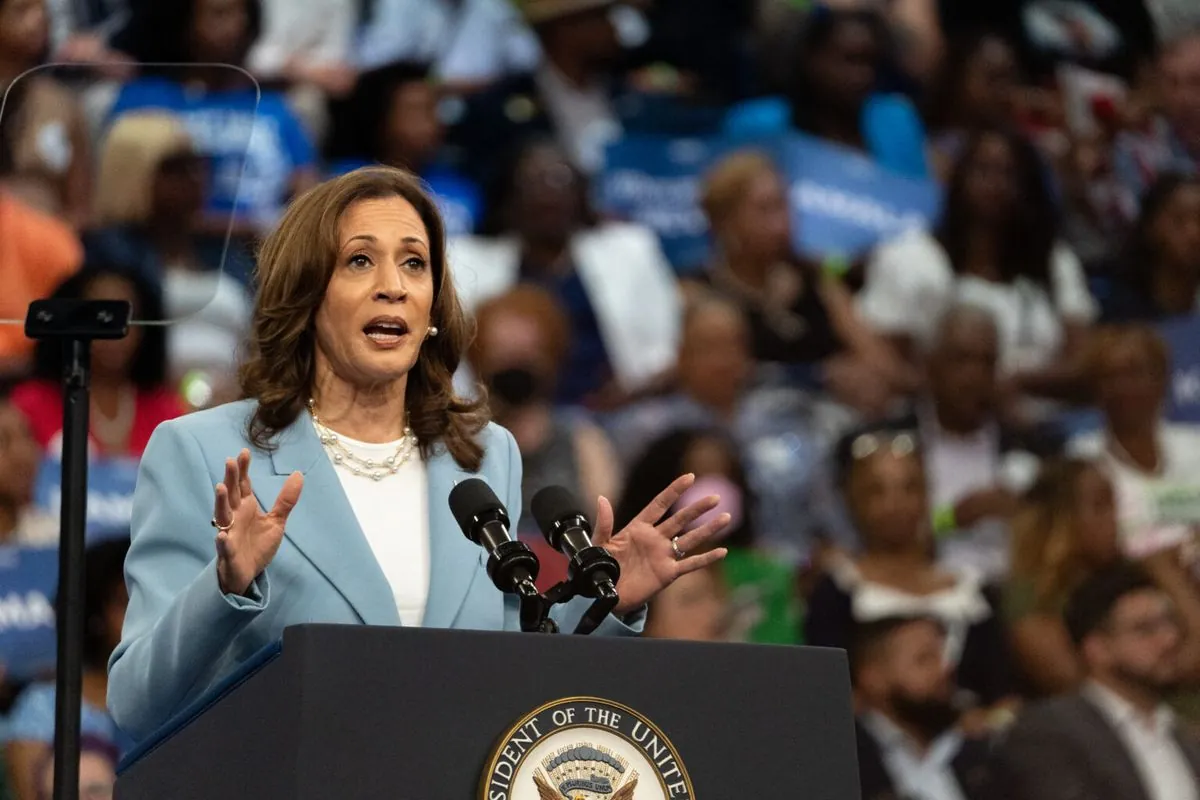In a significant development for the 2024 United States presidential election, Vice President Kamala Harris has demonstrated remarkable fundraising prowess, substantially outperforming her rival, former President Donald Trump, in August 2024. This financial milestone marks a crucial shift in the campaign dynamics as the nation approaches its 60th quadrennial presidential election.
According to official campaign announcements, Harris secured $361 million from nearly 3 million donors in August, her first full month as the Democratic nominee. This figure more than doubles the $130 million raised by Trump's campaign during the same period. The Harris campaign concluded August with $404 million available for the final phase of the election cycle, surpassing Trump's war chest by $109 million.
This substantial financial advantage is set to fuel an ambitious $370 million paid media strategy for the remaining two months of the campaign. Additionally, it will support an extensive ground operation, with over 2,000 field staff distributed across more than 310 offices in key battleground states. The focus on these swing states underscores their critical role in determining the outcome of U.S. presidential elections, where the Electoral College system, not the popular vote, decides the winner.
The Harris campaign's fundraising success builds upon the momentum generated in July 2024, when she assumed leadership of the Democratic ticket following President Joe Biden's withdrawal. This transition has effectively reversed the previous fundraising advantage held by Trump, addressing earlier concerns about voter enthusiasm.
Campaign manager Julie Chavez Rodriguez emphasized the broad and diverse coalition supporting Harris, stating, "Vice President Harris' candidacy has galvanized a history-making, broad and diverse coalition — with the type of enthusiasm, energy and grit that wins close elections."
This fundraising achievement occurs against the backdrop of increasingly expensive U.S. presidential campaigns. The Federal Election Commission (FEC) continues to regulate campaign finance laws, while the role of Super PACs and the ongoing debate over campaign finance reform add complexity to the financial landscape of American politics.
As the first female, African American, and Asian American vice president, Harris' campaign has tapped into a wide donor base. The success in grassroots fundraising, often through small individual donations, reflects a trend that has gained prominence in recent elections. This approach, combined with the strategic use of social media platforms for campaigning and fundraising, demonstrates the evolving nature of political outreach in the digital age.
With early voting and mail-in voting becoming increasingly popular, and the potential for "October surprises" to impact late-stage campaign dynamics, both campaigns are likely to intensify their efforts in the coming weeks. As the election approaches, the focus will shift to translating this financial advantage into voter turnout, a critical factor given that U.S. presidential elections have historically seen lower participation rates compared to many other developed democracies.
